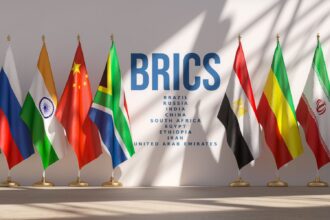In a significant legal showdown, a three-judge panel is set to hear arguments regarding the constitutionality of the U.S. government’s ban on the popular social media app TikTok. This case comes at a time when concerns about data privacy, national security, and freedom of expression are at the forefront of public discourse. The panel’s decision, expected within weeks, could have far-reaching implications for social media regulation and the rights of app users.
Background of the case
The U.S. government’s move to ban TikTok is rooted in fears that the app, which is owned by the Chinese company ByteDance, poses a threat to national security. Officials have expressed concerns that user data could be accessed by the Chinese government, potentially endangering sensitive American information. In response, TikTok has argued that it operates independently of the Chinese government and has implemented measures to protect user data.
The legal battle centers on whether the government’s ban violates the First Amendment, which guarantees freedom of speech and expression. Advocates for TikTok argue that banning the app would infringe on users’ rights to communicate, share content, and engage in social discourse. They maintain that the government has not provided sufficient evidence to justify such a drastic measure.
Arguments for ban
Proponents of the ban maintain that the potential risks to national security outweigh the implications for free speech. They argue that TikTok’s data collection practices, which include gathering information on user locations and browsing habits, could be exploited for espionage or other malicious activities. Supporters of the ban believe that the U.S. government has a duty to protect its citizens from foreign threats, and banning apps that pose such risks is a necessary step.
Furthermore, advocates point to the broader implications of technology and social media’s influence on society. They argue that controlling platforms that may disseminate misinformation or manipulate public opinion is essential for maintaining a healthy democracy. In this view, the ban on TikTok is framed not only as a national security measure but also as a way to safeguard democratic values.
Arguments against the ban
Opponents of the ban assert that it sets a dangerous precedent for government overreach into the digital realm. They contend that restricting access to a widely used platform like TikTok limits free expression in a significant way, particularly for younger users who rely on the app for communication and creative expression. Critics argue that the government should focus on regulating data privacy rather than imposing outright bans.
Additionally, there are concerns about the lack of transparency in the government’s decision-making process. Opponents argue that the evidence presented to justify the ban has not been made public, raising questions about the legitimacy of the government’s claims. They advocate for a more nuanced approach that addresses data privacy concerns while preserving users’ rights to access the platform.
As the three-judge panel prepares to hear the case, the implications of their decision will resonate far beyond TikTok. The ruling could establish a precedent for how the government regulates social media apps and addresses issues of data privacy and national security. The balance between safeguarding citizens and protecting constitutional rights is a complex and contentious issue that will likely continue to evolve in the digital age.
In the coming weeks, as arguments are presented and deliberations unfold, the future of TikTok and the principles of free expression and security will hang in the balance. Regardless of the outcome, this case underscores the ongoing challenges faced by governments, tech companies, and users in navigating the intricate landscape of digital communication and privacy.
ALSO READ: TikTok to remove Lite app rewards programme targeted in landmark European Union DSA case













